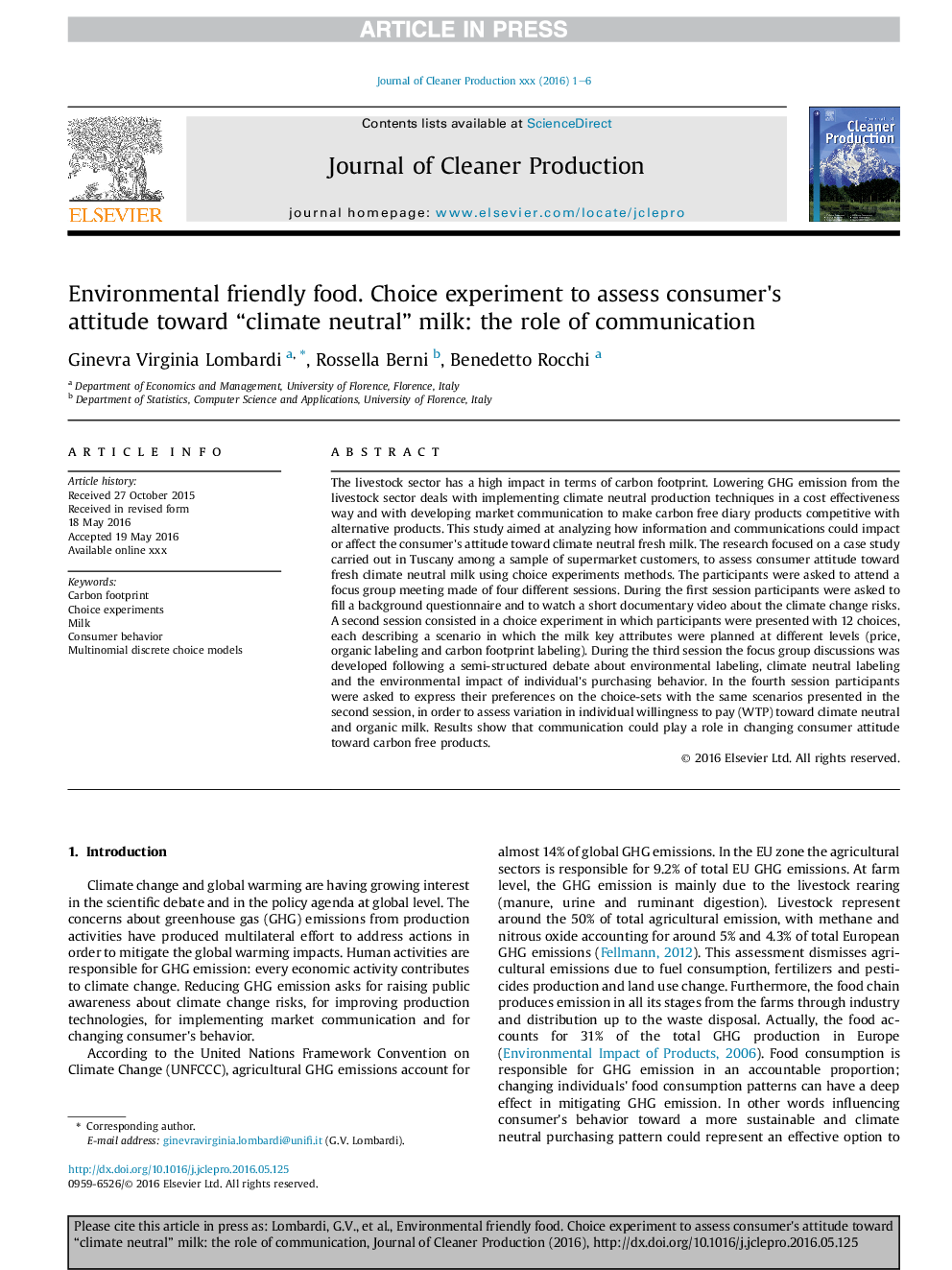| Article ID | Journal | Published Year | Pages | File Type |
|---|---|---|---|---|
| 5481346 | Journal of Cleaner Production | 2017 | 6 Pages |
Abstract
The livestock sector has a high impact in terms of carbon footprint. Lowering GHG emission from the livestock sector deals with implementing climate neutral production techniques in a cost effectiveness way and with developing market communication to make carbon free diary products competitive with alternative products. This study aimed at analyzing how information and communications could impact or affect the consumer's attitude toward climate neutral fresh milk. The research focused on a case study carried out in Tuscany among a sample of supermarket customers, to assess consumer attitude toward fresh climate neutral milk using choice experiments methods. The participants were asked to attend a focus group meeting made of four different sessions. During the first session participants were asked to fill a background questionnaire and to watch a short documentary video about the climate change risks. A second session consisted in a choice experiment in which participants were presented with 12 choices, each describing a scenario in which the milk key attributes were planned at different levels (price, organic labeling and carbon footprint labeling). During the third session the focus group discussions was developed following a semi-structured debate about environmental labeling, climate neutral labeling and the environmental impact of individual's purchasing behavior. In the fourth session participants were asked to express their preferences on the choice-sets with the same scenarios presented in the second session, in order to assess variation in individual willingness to pay (WTP) toward climate neutral and organic milk. Results show that communication could play a role in changing consumer attitude toward carbon free products.
Related Topics
Physical Sciences and Engineering
Energy
Renewable Energy, Sustainability and the Environment
Authors
Ginevra Virginia Lombardi, Rossella Berni, Benedetto Rocchi,
